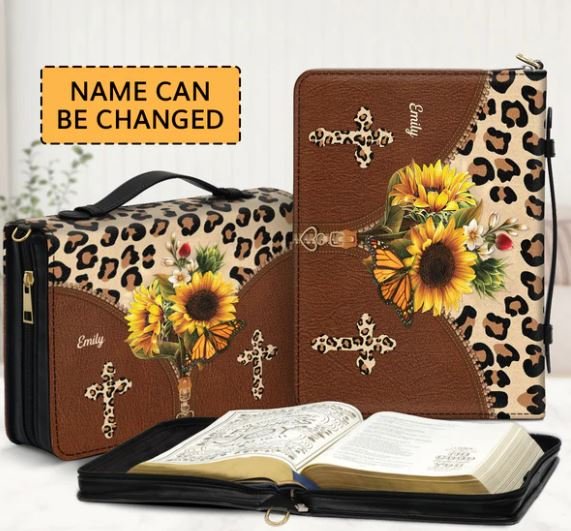God's Blueprint for Love: Navigating Agape, Phileo, Storge, and Eros
As an Amazon Associate, I earn from qualifying purchases. This page contains affiliate links. If you choose to make a purchase after clicking a link, I may receive a commission at no extra cost to you.
Visit our Holy Spirit Gear Store- - - - - ->>> HERE <<< - - - - - - New items Weekly
As I sit to write down my thoughts on the multifaceted concept of love, I'm drawn to the rich tapestry of teachings found in the Bible. Love, a word so often used and yet so profoundly misunderstood, takes on a whole new dimension when viewed through the lens of Scripture. With Valentine's Day today, it seems apt to dive into what the Bible truly says about love. The Scriptures speak of four distinct types of love: agape, phileo, storge, and eros. Each unique, yet together, they weave a complete picture of the love that God desires for us and from us.
Agape: Unconditional Love
Agape love, often referred to as unconditional love, is perhaps the most profound form of love discussed in the Bible. It's the love that God has for us, a love that is selfless, sacrificial, and unconditional. John 3:16 encapsulates this love perfectly, "For God so loved the world, that he gave his only begotten Son, that whosoever believeth in him should not perish, but have everlasting life." This verse not only highlights the depth of God's love for us but also sets a standard for how we are to love others.
Practicing agape love in daily life means loving others without expecting anything in return. It means forgiving those who have wronged us, just as in Ephesians 4:32, "And be ye kind one to another, tenderhearted, forgiving one another, even as God for Christ's sake hath forgiven you." It's about making sacrifices for the good of others, following the example of Christ.
Phileo: Brotherly Love
Phileo love is the love of friendship or brotherly love. It's the love we have for our friends, the bond that holds Christian fellowship together. Romans 12:10 encourages us, "Be kindly affectioned one to another with brotherly love; in honour preferring one another;" This verse reminds us of the importance of nurturing relationships within the body of Christ, showing preference to others, and lifting them up.
Cultivating phileo involves being present, listening, and genuinely caring for our friends. It's about rejoicing with those who rejoice and weeping with those who weep, as commanded in Romans 12:15. In our fast-paced world, phileo calls us to slow down and invest time and energy into the relationships that enrich our lives and strengthen our faith.
Storge: Family Love
Storge, or family love, is the natural affection between family members. It's the love parents have for their children, the bond between siblings, and the loyalty that keeps a family united. While the term "storge" is not directly used in the Bible, the concept is widely present. For instance, the tender love that Ruth showed Naomi embodies storge, as Ruth clung to her mother-in-law, refusing to leave her side (Ruth 1:14).
Nurturing storge love can be challenging, especially when family conflicts arise. Yet, Colossians 3:13-14 guides us, "Forbearing one another, and forgiving one another, if any man have a quarrel against any: even as Christ forgave you, so also [do] ye. And above all these things [put on] charity, which is the bond of perfectness." These verses remind us that forgiveness and love are key to maintaining strong family bonds.
Eros: Romantic Love
Eros is the romantic, passionate love shared between spouses. It's celebrated in the Bible within the context of marriage, as seen in the Song of Solomon. This book is a beautiful depiction of romantic love, filled with poetry and expressions of desire between a husband and his wife. Proverbs 5:18-19 also celebrates this love, "Let thy fountain be blessed: and rejoice with the wife of thy youth. Let her be as the loving hind and pleasant roe; let her breasts satisfy thee at all times; and be thou ravished always with her love."
Balancing eros with the other forms of love is crucial in a Christian marriage. It's about nurturing passion and intimacy while also embodying agape, phileo, and storge. Ephesians 5:25 instructs husbands, "Husbands, love your wives, even as Christ also loved the church, and gave himself for it;" indicating that eros, when combined with agape, leads to a fulfilling and godly marriage.
Integrating Love in Christian Relationships
Integrating these different forms of love can transform our relationships, making them richer and more fulfilling. On Valentine's Day, and every day, we are called to love not just with words, but in truth and action (1 John 3:18). Whether it's through the selfless acts of agape, the companionship of phileo, the natural affection of storge, or the passion of eros, each type of love plays a vital role in our lives.
Recommended Books to Further Study the Subject
As we reflect on the biblical definition of love, it's clear that love is not just a feeling; it's an action, a commitment, and a way of living that reflects the heart of God. This Valentine's Day, let us strive to embody the love described in 1 Corinthians 13:4-7, "Charity suffereth long, and is kind; charity envieth not; charity vaunteth not itself, is not puffed up, Doth not behave itself unseemly, seeketh not her own, is not easily provoked, thinketh no evil; Rejoiceth not in iniquity, but rejoiceth in the truth; Beareth all things, believeth all things, hopeth all things, endureth all things."
May we love deeply, freely, and fully, just as Christ loves us. And may this love guide us in all our relationships, today and always.















